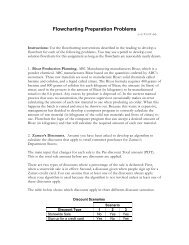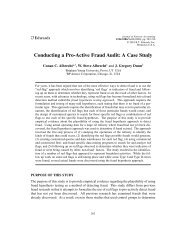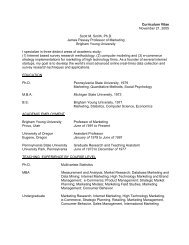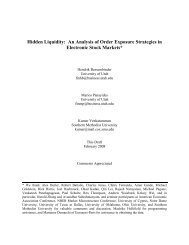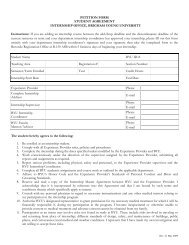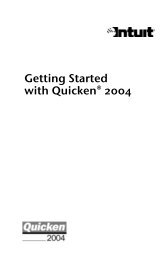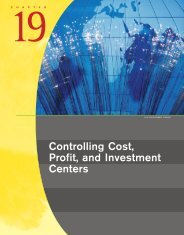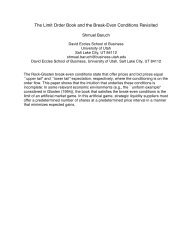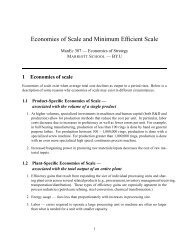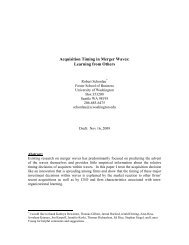why do firms go public? - Marriott School
why do firms go public? - Marriott School
why do firms go public? - Marriott School
You also want an ePaper? Increase the reach of your titles
YUMPU automatically turns print PDFs into web optimized ePapers that Google loves.
Table 1) was actually created after the survey data had been collected. As such, the authors were<br />
able to only get partially to the question, “Why <strong>do</strong> <strong>firms</strong> <strong>go</strong> <strong>public</strong>”<br />
[Insert Table 1 about here.]<br />
A modified version of Brau et al. (2006) Table 3 is our Table 1. Only three survey<br />
questions received at least 75% agreement as an advantage of conducting an IPO: to gain<br />
financing for long-term growth (86.8%), to gain financing for immediate growth (86.8%), and to<br />
increase liquidity (82.5%). Note that although the two most popular questions are consistent with<br />
the empirical work of Mikkelson et al. (1997), they still <strong>do</strong> not directly address <strong>why</strong> the firm<br />
chose external equity for immediate and long-term growth and not some other cheaper financing<br />
source. Brau et al. (2006) Table 7 (pg. 506) shows that in regressions, <strong>firms</strong> that replied that<br />
immediate growth was a benefit were actually correlated with negative and significant 1-year<br />
abnormal returns. Perhaps the “immediate growth” response indicated “strapped for cash” which<br />
did not turn around over the year after the IPO.<br />
On the other end of the response ranking, only 3.8% of the CFOs agreed that “a benefit of<br />
the IPO was that it allowed for the retirement of the original owner.” The surprising low<br />
agreement to this question most likely points out one of the main criticisms of survey research.<br />
Even if the original founders used the IPO as a harvest strategy, the survey responder may feel a<br />
duty to cover for them. Perhaps, the worry is lawsuits. Perhaps, the worry is a negative signal.<br />
Critics of survey research have a valid point when they argue that survey participants may not<br />
always be truthful. Of course, if the survey data can be linked to insider sales data at the time of<br />
the IPO and in the following months, the survey replies could be cross-checked. For example, in<br />
the Brau, Ryan, and Degraw (2006) survey, SDC data is used to examine how many of the 181<br />
25



